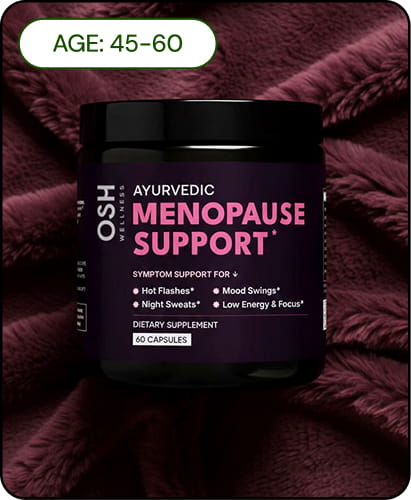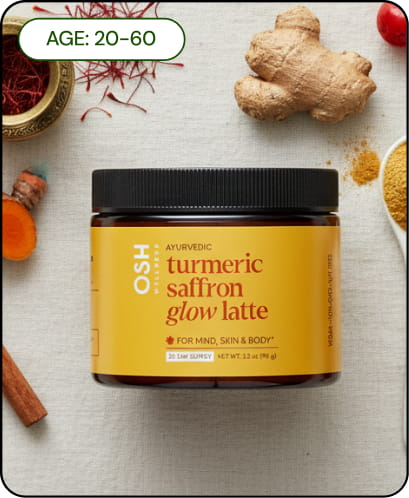Table of contents
Menopause is a vital phase in a woman’s life, marked by significant biological changes that affect physical, emotional, and mental health. Typically occurring between the ages of 45 and 55, menopause is often oversimplified as the cessation of menstruation. However, it encompasses a broad spectrum of symptoms, from hot flashes to psychological impacts, profoundly influencing quality of life. This article provides an in-depth exploration of menopause’s multifaceted effects and highlights effective management strategies to empower women during this transitional life stage.
Introduction to Menopause

Menopause signifies the end of a woman's reproductive years and is defined as the absence of menstrual periods for 12 consecutive months. This transition is primarily driven by a decline in ovarian function, leading to decreased production of key hormones such as estrogen and progesterone. Gradually, the ovaries become less responsive to hormonal signals, reducing the number of functional ovarian follicles.
Most women experience menopause between the ages of 45 and 55, with the average onset around 51 years. Early menopause (ages 40-44) and premature ovarian insufficiency (before age 40) are also recognized. The timing is influenced by genetics, overall health, and environmental factors.
The implications of menopause extend beyond biology, influencing both societal roles and personal identity. As life expectancy increases globally, more women are living a significant portion of their lives postmenopausally. In 2021, women aged 50 and older made up 26% of the global female population[1].
Physical symptoms such as hot flashes, mood swings, and night sweats can significantly impact daily life. Understanding menopause holistically is crucial not only to symptom management but to fostering healthy aging, thereby ensuring quality of life and functionality for postmenopausal women in society.
Historical and Cultural Perspectives on Menopause

Cultural interpretations of menopause vary widely and shape the perception and experience of this life stage. In many Western societies, menopause is viewed as a medical condition often associated with loss and aging. This framing fuels the widespread use of treatments for symptoms like hot flashes and depression.
In contrast, non-Western cultures often embrace menopause as a natural, even empowering, transition. In Japan, for instance, the term "konenki" carries associations of energy and renewal, and lacks a direct translation for "hot flash"[2]. Similarly, in Traditional Chinese Medicine, menopause is depicted as part of the natural life cycle focused on restoring “kidney yin” balance, prioritizing holistic well-being[3].
In communities like those in Papua New Guinea or among some Native American tribes, menopause is seen as a time of elevated respect and freedom, not decline[4]. These cultural variations also influence how symptoms are reported. In cultures where menopause is valued or openly discussed, women often report fewer or less severe symptoms compared to societies that stigmatize it.
The biocultural framework highlights how both biological changes and cultural context shape menopausal experiences, stressing the need for healthcare models that respect this duality[5].
Symptoms Beyond Hot Flashes

While hot flashes are the hallmark of menopause, the spectrum of menopause symptoms includes vasomotor disturbances, sleep problems, and emotional fluctuations that deeply affect overall health.
Vasomotor symptoms: These include hot flashes and night sweats, affecting up to 85% of menopausal women. They disrupt daily life and sleep patterns[6].
Sleep disturbances: Insomnia is common and often exacerbated by hormonal changes, anxiety, and night sweats. Restless Legs Syndrome impacts over 50% of postmenopausal women and is frequently overlooked[7].
Psychological changes: Many women experience anxiety, irritability, depression, and mood swings. These mental health shifts can deepen sleep issues and create a stress-symptom cycle[8].
Managing these symptoms effectively often requires an integrated approach. Techniques such as cognitive behavioral therapy and select pharmacologic interventions, when combined with lifestyle changes, can improve symptom control and enhance quality of life[9].
Lifestyle Choices for Managing Menopause

Targeted lifestyle modifications offer powerful tools for managing menopause symptoms. A healthy, balanced diet is the foundation of well-being at this stage.
Consume plenty of fruits, vegetables, whole grains, lean proteins, and healthy fats.
Ensure adequate intake of calcium and vitamin D to support bone health.
Incorporate phytoestrogen-rich foods like soy, which may help balance hormones.
Avoid triggers such as caffeine, alcohol, and spicy foods that can worsen symptoms[10].
Physical activity is a proven method to reduce symptom severity:
Engage in at least 150 minutes of moderate aerobic exercise weekly, such as brisk walking or cycling.
Incorporate weight-bearing activities to maintain bone density.
Practice yoga or tai chi to enhance flexibility, decrease stress, and promote relaxation[11].
Additionally, stress-reduction strategies like mindfulness, CBT, and peer support systems reinforce emotional stability. Practicing sleep hygiene and seeking professional guidance for supplements or alternative therapies can enrich overall menopausal well-being[12][13].
Medical Options and Supportive Care

Medical interventions for menopause include both hormonal and non-hormonal options, customized to an individual's needs and health status.
Hormone Replacement Therapy (HRT) is the most common treatment for severe menopausal symptoms. It relieves hot flashes, mood changes, and vaginal dryness, and also offers protection against osteoporosis. For women under 60 or within 10 years of menopause onset, HRT may yield more benefits than risks, especially when personalized in consultation with a healthcare provider[14].
Alternatives to HRT are available for those with contraindications:
Selective anti-depressants (SSRIs or SNRIs), gabapentin, and clonidine help manage hot flashes and mood disorders[15].
Cognitive Behavioral Therapy (CBT) addresses anxiety, sleep challenges, and mood disturbances[16].
Natural supplements, featuring Ayurvedic herbs such as ashwagandha and shatavari, can help ease hot flashes, reduce fatigue, and support hormonal balance naturally.
Support networks, including peer-led groups and community resources, help reduce isolation by allowing women to share experiences and coping strategies, enhancing their ability to manage menopause[17].
Future Trends in Menopause Management

Emerging research and technology are set to revolutionize how menopause is managed. Digital health tools , such as wearables and telemedicine platforms, now allow women to monitor symptoms and access care more conveniently[18].
Simultaneously, there's a growing focus on:
Non-hormonal therapy research: Expanding options for symptom control beyond HRT[19].
Personalized medicine: Tailoring treatment based on genetics, lifestyle, and risk factors[20].
Menopause awareness: Celebrities and influencers are sparking global conversations to reduce stigma and encourage open dialogue[21].
Workplace wellness programs: Introducing menopause support into corporate health initiatives for a more inclusive work environment[22].
Relevant Products
There is a growing selection of commercial menopause-support supplements leveraging these herbs. One example is Osh Wellness Menopause Support, which combines black cohosh, ashwagandha, and shatavari in clinically-informed dosages. Such products offer a convenient solution for those seeking natural relief from menopausal symptoms.
Conclusions

Menopause is a complex and transformative phase marked by a range of physical and emotional symptoms. By incorporating a combination of lifestyle practices , medical interventions, and supportive care, women can navigate this transition with greater resilience and confidence. Raising awareness and promoting informed conversations about menopause ensures that every woman has access to the support and resources necessary for a healthier and more fulfilling experience.
FAQs
What are the common symptoms of menopause?
Hot flashes, night sweats, mood swings, sleep disturbances, and vaginal dryness.
How can I manage sleep disturbances during menopause?
Use a holistic approach including sleep hygiene, stress management, and possibly CBT.
What dietary adjustments are beneficial during this transition?
Focus on calcium, vitamin D, phytoestrogens, and avoid symptom triggers.
When should I consider Hormone Replacement Therapy?
If symptoms are severe and significantly impact quality of life, consult your physician.
Are there natural or Ayurvedic remedies that can help?
Yes, lifestyle changes, herbal remedies, and supplements like those from Osh Wellness can provide support.
Sources
1: World Health Organization - Menopause
2: Women's Health Network - Menopause in Different Cultures
3: NCBI - Menopause: A Global Perspective
4: Human Reproduction Update - Menopause: A Life Course Approach
5: Continence Foundation of Australia - Cultural Perspectives on Menopause
6: National Institute on Aging - Sleep Problems and Menopause: What Can I Do?
7: Johns Hopkins Medicine - How Does Menopause Affect My Sleep?
8: Sleep Foundation - Menopause and Sleep
9: Women's Health Concern - Menopause and Insomnia
10: NYU Langone - Lifestyle Changes for Menopause
11: North American Menopause Society - Patient Education
12: NHS - Things You Can Do about Menopause
13: Wellness OBGYN - Menopause Lifestyle Changes
14: Cedars-Sinai - Hormone Replacement Therapy: Risks and Benefits
15: Mayo Clinic - Hormone Therapy
16: Cleveland Clinic - Hormone Therapy for Menopause Symptoms
17: National Cancer Institute - Hormone Therapy: Fact Sheet
18: PA Consulting - Femtech Innovations Change Menopause Management in 2025
19: GlobeNewswire - Treatment of Menopausal Hot Flashes: Global Industry Trends
20: The Business Research Company - Menopause Global Market Report
21: International Menopause Society - Menopause and MHT in 2024
22: Axios - Menopause Influencers and Their Role in Addressing Symptoms







